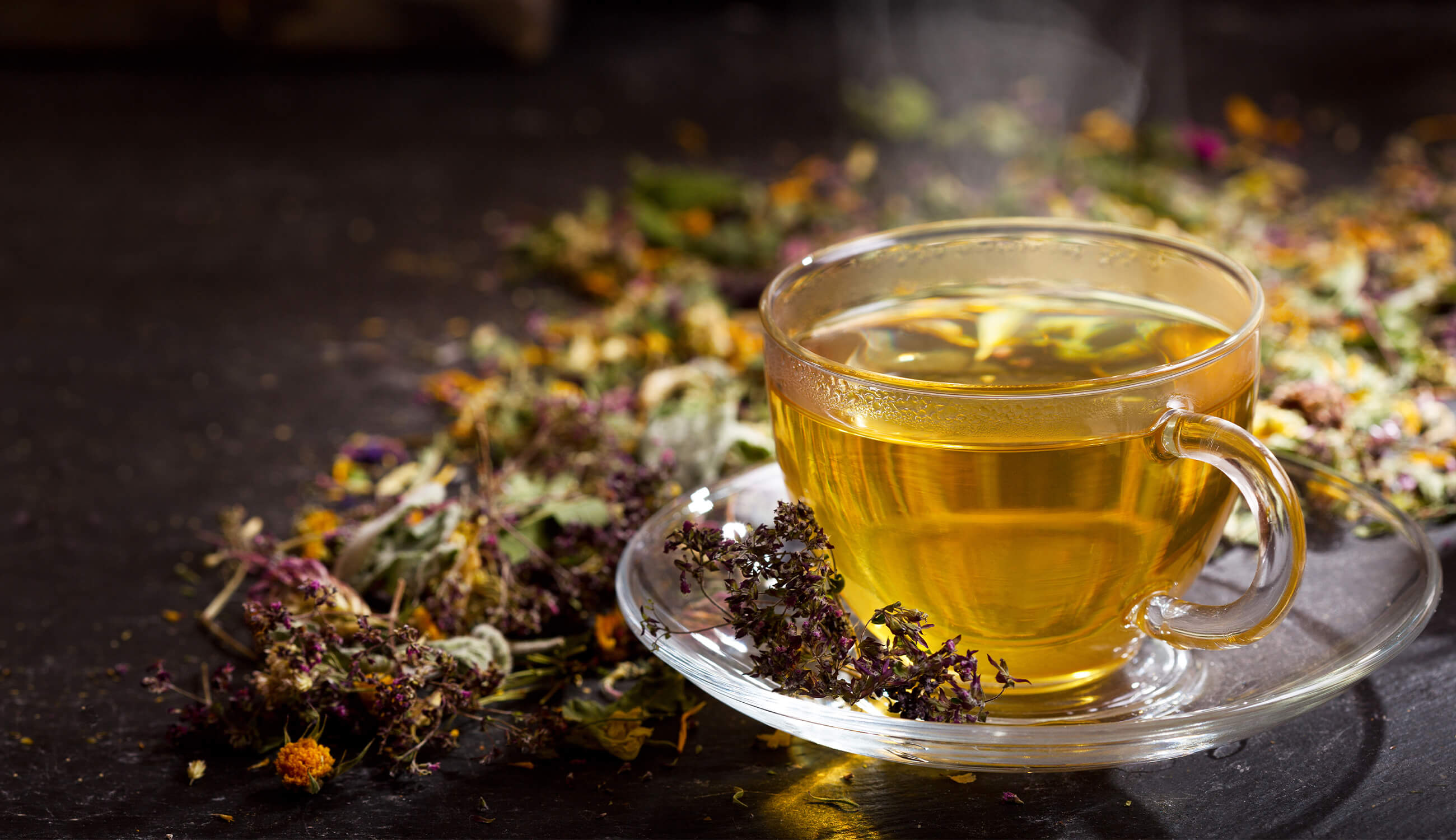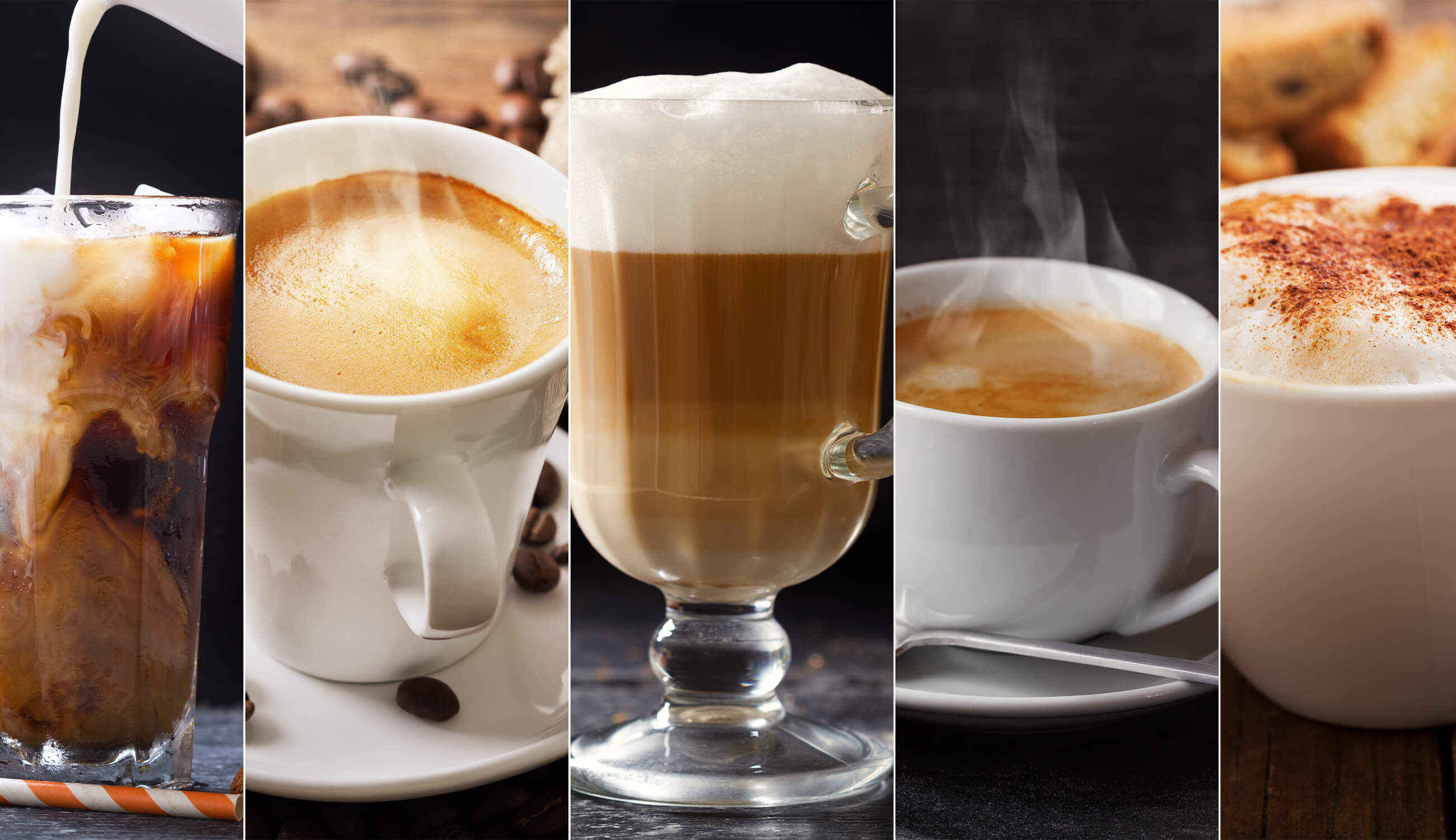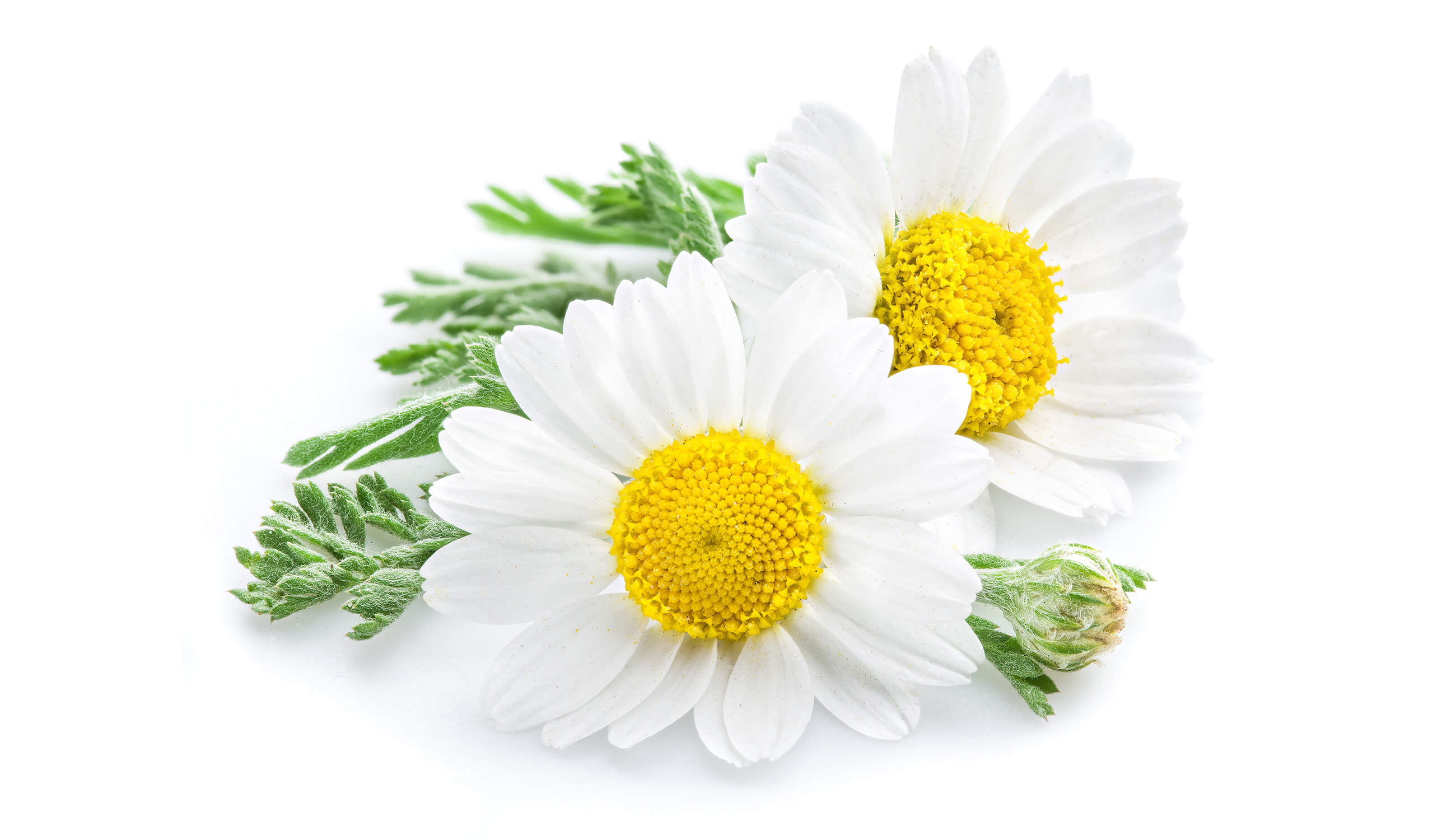Exploring endless herbal tea benefits, and why it could be better for you than coffee
Written by: 100% PURE ®
Unpopular opinion: I love the decaffeinated lifestyle.
Faced with the relentless stressors and anxieties of 2020 – pandemic isolation, personal loss, wildfire evacuations – I found that the once coveted jolt from coffee was doing more harm than good. My anxiety was intensified, and my usual relaxation techniques no longer worked. In short, caffeine wasn’t the problem – but it certainly wasn’t helping matters.
It all started when the anxiety hit: caffeine jitters were the last thing I needed on top of, well, everything else. But I still needed a warm drink to get me going in the morning, so I switched to chamomile. Next I ventured into decaf green tea, then decaf black tea. When the benefits of switching to herbal tea became obvious, I decided to stick with it.
In this post, we’ll dive into the many benefits of reducing caffeine intake and sipping herbal teas. We’ll also talk about why one might be better for your health than the other, and name a few herbal teas to try on your decaf journey.

Before we go into the big list of herbal tea benefits, let’s review the effects of a caffeine-drinking lifestyle.
The first element here is, of course, the element of caffeine itself. Caffeine does have some amazing benefits for health, like improved memory and brain function. Unfortunately it’s also habit-forming, much like cigarettes and alcohol. That’s why we feel so cranky if we’ve missed our usual cup of coffee, and why it’s such a tough dietary habit to kick.
In addition to caffeine, consider everything else we add to coffee (or caffeinated tea). These additions piggyback on caffeine to create negative side effects for our health. Many people add creamer to coffee to help them digest the acidic brew, or add sugar to make the bitter taste more palatable. So what are these additions costing us, just to enjoy a cup of coffee?
If you don’t think you could give up your daily coffee, consider these stats:
-
The average coffee drink (no milk, no sweetener) won’t make much of a dent in caloric intake for the day, with an average of 3-6 calories. However...
-
The average iced coffee drink (with milk, no sweetener) clocks anywhere from 100-600 calories.
-
The average flavored coffee drink (with milk, with sweetener) averages around 400-2,000 calories and 18-45 grams of sugar.
-
For reference, 1 medium chocolate donut – what most of us would consider a pretty unhealthy treat – contains about 195 calories, and 11 grams of sugar. That means that one sweetened seasonal latte is the caloric equivalent to eating 10 chocolate covered donuts.
PRO TIP: Many people drink more than the recommended amount of caffeine per day, which is 400mg. If you’re not ready to switch to herbal teas or cut out caffeine for good, that’s fine! Start by staying under 400mg of caffeine: that’s roughly 2 coffees per day.
We’re not saying to completely deny yourself coffee, matcha, black tea, or green tea. However, it’s worth cycling in caffeine-free alternatives, like herbal tea. You get some of the same benefits – a hot drink on a cold morning, antioxidant benefits – with less potential for related unhealthy habits.
Here are a few herbal tea benefits for your health:
Hydration
When you’re sipping tea, you’re boosting your water intake. While both coffee and tea have diuretic effects – meaning they make you urinate more frequently – herbal teas tend to maintain hydration levels a bit better. Hydration also equals clearer and more luminous, supple skin.
Lower Calories
Aside from being more hydrating than its caffeinated counterparts, herbal teas also tend to be a lower-calorie option. When we make coffee we tend to add creamers, sweeteners, and milks. With herbal tea, you don't normally add anything.
Holistic Benefits
Plenty of holistic benefits come along with herbal teas: detoxifying, alkalizing, anti-inflammatory, soothing, calming, beneficial for sleep… the list is long. Decaf green tea and decaf black tea also have plenty of powerful antioxidants, even with caffeine removed.
PRO TIP: Herbal teas are naturally caffeine-free. Other teas like black tea and green tea naturally contain caffeine, but can be intentionally decaffeinated during processing.
Easier to Digest
Rumble rumble… We’ve all faced stomach upset from coffee at one point or another. Some accept it as an unavoidable side effect of drinking caffeine, and deal with stomach upset on a daily basis after drinking too much caffeine.
Some people prefer decaf coffee, or even coffee alternatives made with chicory. Note that chicory is notorious for causing bloating and gas, and decaf coffee will still contain small amounts of caffeine and acid.
Lower Acidity
This means they’re better for your teeth (enamel), for your gut, and for your internal systems. A more alkaline diet has even been linked to a reduced cancer risk. Of course, some herbal teas can still be acidic depending on what they contain. If you’re prone to acid reflux, limit your intake of peppermint and ginger teas, especially before bedtime.
No Caffeine Crash
When you drink herbal tea, there’s no spike in energy – which means no crash. You can enjoy a more balanced mood and more stable energy levels when you lower your caffeine intake.
Better Sleep
For those who drink caffeine, experts recommend that you stop drinking it after 3pm. That’s because caffeine can keep you up at night, and can even rob you of valuable REM sleep. With herbal tea, there are no rules! You can drink it right before bed, and some are actually recommended before hitting the hay to help you unwind.
Lower Cholesterol
Studies have suggested that drinking coffee could increase “bad” LDL cholesterol levels. High LDL cholesterol increases your risk for heart attack and stroke. Drinking herbal tea is just one way to lower these potential risks.
Fewer Muscle Cramps
High caffeine intake has been linked to decreased absorption of magnesium, which is a top alleviator of muscle cramps. This means that if you drink a lot of coffee, you might be more prone to cramps and muscle spasms.

David's Tea Organic Mint Olympus
-
good for digestion, relaxation, cold season support
David's Tea Organic Bravissimo
-
good for sore throat, relaxation
David's Tea Organic Calming Chamomile
-
good for all day calm, nighttime help with sleep
-
good for easing inflammation, made with less than a gram of sugar from low glycemic coconut sugar
-
soothes and calms when you're under the weather
-
for calming you in stressful moments
More herbal tea brands to try:
Yogi – USDA Organic, large selection of herbal and medicinal teas
Numi – Fair Trade Certified, Verified Fair Labor™, B Corp certified
Traditional Medicinals – Fair Trade Certified, supports small suppliers, USDA Organic, large selection of herbal and medicinal teas
Tea Forté – tea boxes made with post-consumer paper and soy ink, wide selection of custom luxury teas
The Republic of Tea – premium ingredients, unbleached tea bags, wide selection of traditional and modern-themed teas
Stash Tea – GMO-Free, B Corp certified, affordable teas
To summarize our research, here’s a quick cheat sheet to help you decide if trying herbal tea over caffeine is right for you:
PROS
-
Your body will learn to utilize other sources for energy, like fats and carbohydrates
-
Your body will become more efficient at energizing itself without outside stimulants
-
Sleep may come easier at night, and be deeper
-
Herbal tea drinkers are likely to ingest less sweeteners, fats, and calories than those who drink coffee
-
You can find a wider variety of holistic benefits than with plain coffee
-
There are more options for pregnant and breastfeeding moms
CONS
-
It will take some time to readjust your body to lack of caffeine; headaches may happen at first, and lingering fatigue may last anywhere from a few days to a few weeks
-
Decaf teas may still contain trace amounts of caffeine
-
When compared to coffee, herbal tea isn’t as effective at reducing the risk of type 2 diabetes
Note that caffeine affects everyone differently, so you may notice varying degrees of the above effects.
If you think it’s an impossible task to cut down on caffeine, trust me, I get it. I – an ex-barista, former wholesale coffee buyer, and working mom of a toddler – can tell you that it’s possible.
Once you remove the crutch of caffeine, you’ll be forced to improve other aspects of your health. Without caffeine you start to appreciate your sleep routine, you respect the evening wind-down, and you begin to understand how other aspects of your diet and lifestyle can affect energy levels. All in all, herbal tea benefits can definitely be worth the initial caffeine crash!
- Tags: January-2021, Wellness
We carefully hand-select products based on strict purity standards, and only recommend products we feel meet this criteria. 100% PURE™ may earn a small commission for products purchased through affiliate links.
The information in this article is for educational use, and not intended to substitute professional medical advice, diagnosis, or treatment and should not be used as such.

